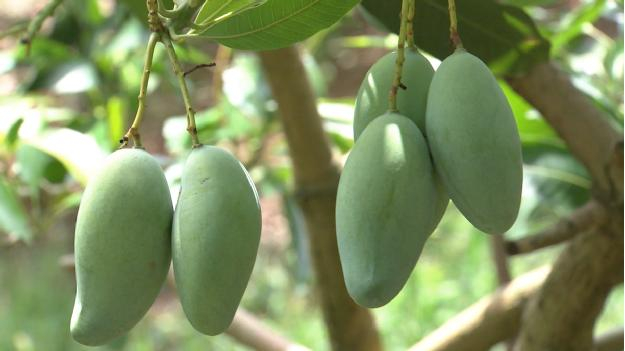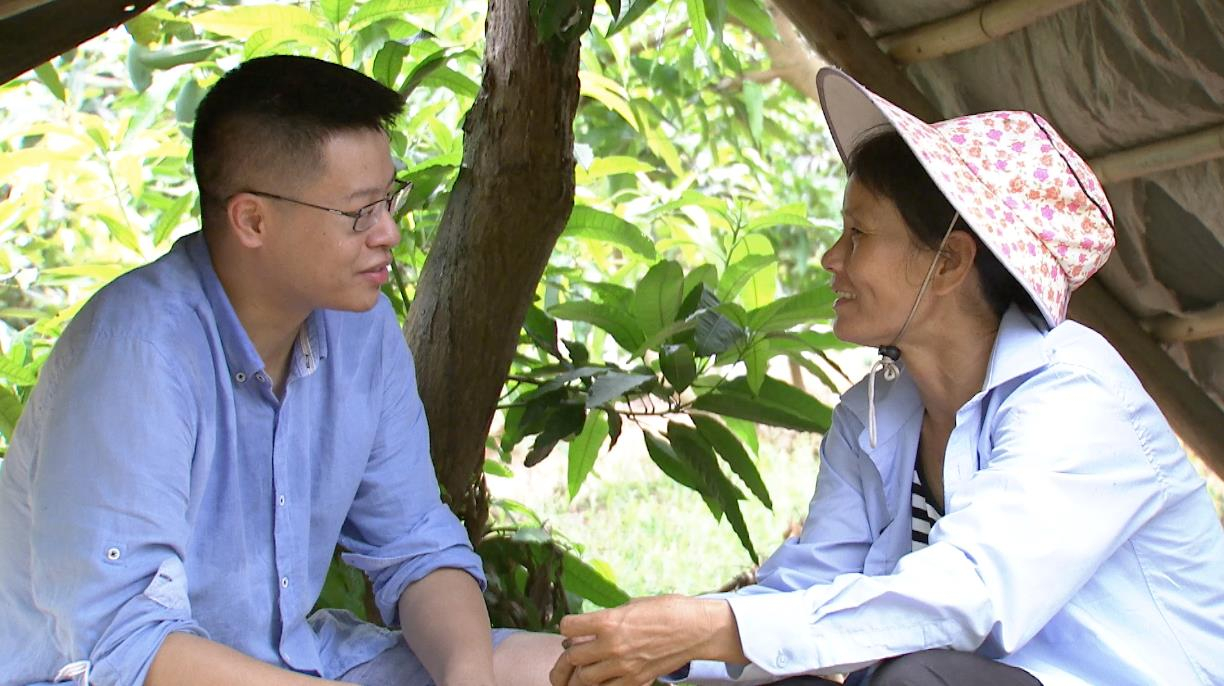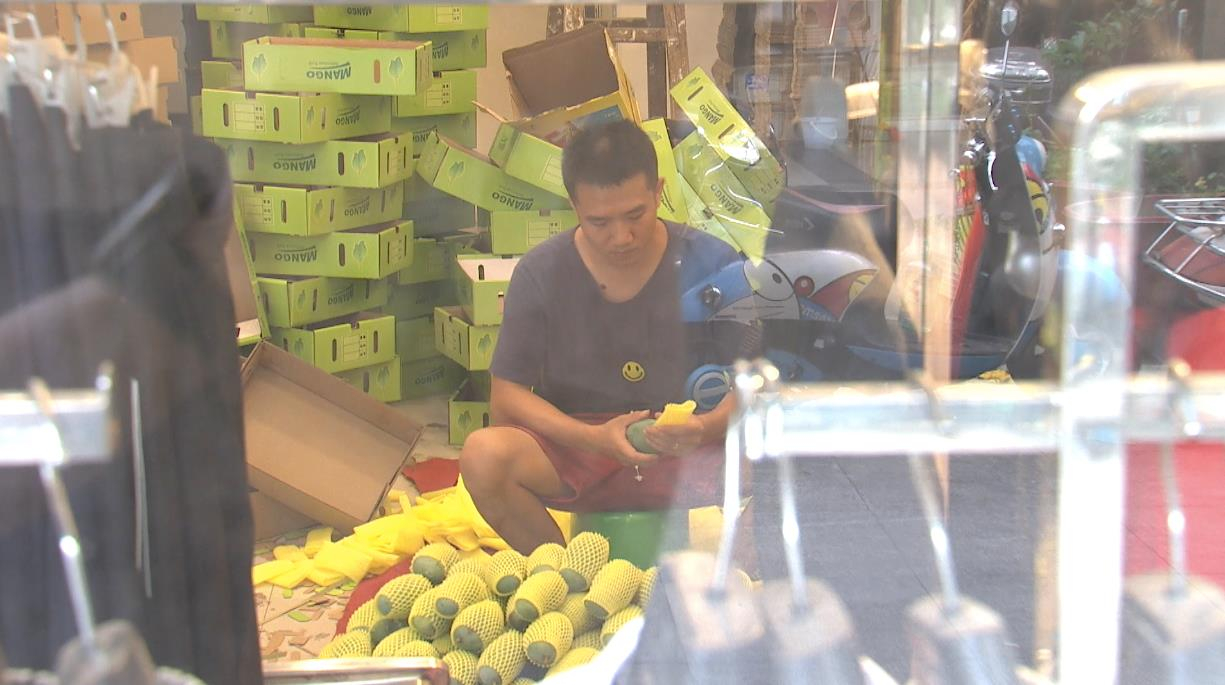
Business
15:02, 30-Jul-2018
Mango boosts local economy in China's Tiandong County
Updated
14:03, 02-Aug-2018
By CGTN's Cui Hui’ao, You Siyuan
02:24

Forty-five-year-old Lei Bilian has farmed mangoes on this land for over two decades. Everyday, she picks up around 300 kilos of them on her own.
“Business has been good in the past three years. Now I make around 10,000 yuan (about 1,464 US dollars) every year. I am very happy,” said Lei Bilian.

CGTN reporter talks to Lei Bilian, a local mango farmer in Tiandong county, Guangxi Zhuang Autonomous Region. /CGTN Photo
CGTN reporter talks to Lei Bilian, a local mango farmer in Tiandong county, Guangxi Zhuang Autonomous Region. /CGTN Photo
Lei said mango prices have risen from four yuan per kilogram to 10 yuan over the past three years. She has become more affluent as the local mangoes have become more popular nationwide
After years in the retail business, 30-year-old Li Jianfeng joined the mango business and selling them on WeChat, China's biggest social media app.
“It's more lucrative. During peak season, I sell 3,000 packs of mangoes per day, and hire 100 people to help me pack the fruits,” said Li Jianfeng.
Li has developed hundreds of agents selling Tiandong mangoes for him across the country. He and his wife started their own studio, together making more than 200,000 yuan in the two-month-long mango season alone. That's almost 30,000 US dollars...more than sufficient to live comfortably in Tiandong.

Li Jianfeng packaging mangoes at his clothing store. /CGTN Photo
Li Jianfeng packaging mangoes at his clothing store. /CGTN Photo
For nearly a century, Tiandong county in the Guangxi Zhuang Autonomous Region has become synonymous with mangoes. Hundreds of thousands of tons of the sweet, juicy fruit are grown here each year. The fertile soil and abundant sunshine have allowed Tiandong to become one of the three major mango production regions in China.
“We Chinese say those who live on a mountain live off the mountain. I know a lot of young people are returning to their hometowns to seize this fruit business opportunity and the natural resources we have,” said Li Jianfeng.
As promising and lucrative as the mango business may sound, one question remains.
“I am kind of worried, as we might be the last generation of farmers. Both of my children used to help me out in the farm, but now they've grown up and do not want to become mango farmers. They enjoy city life better,” said mango farmer Lei.
The fruitful business has changed the lives of many farmers and young people there. Local authorities say nearly 12,000 Tiandong people have been lifted out of poverty thanks to this "mango economy." And, around 60,000 locals are currently involved in the business.
But given the unwillingness of the next generation to cultivate mangoes, only time will tell if the business will continue to bear fruit.

SITEMAP
Copyright © 2018 CGTN. Beijing ICP prepared NO.16065310-3
Copyright © 2018 CGTN. Beijing ICP prepared NO.16065310-3